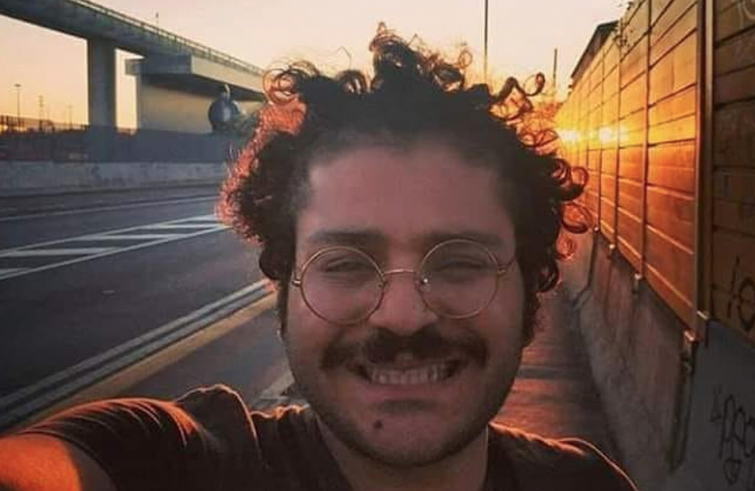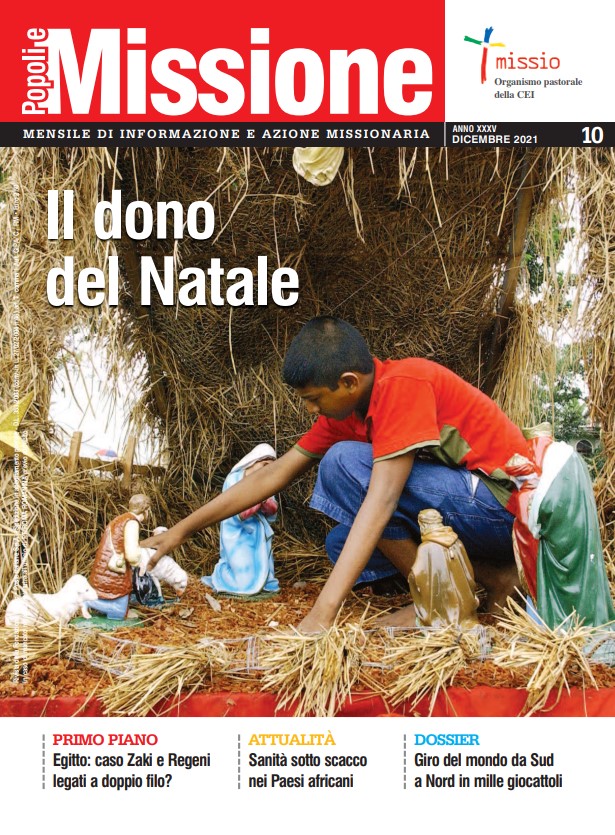
Regrettably, Al Sisi’s military regime “has been successful in Egypt, and its negative model has been replicated in other countries, including the recent military coup in Sudan.” Interviewed by Popoli e Missione (the December issue also includes an in-depth feature by Pierluigi Natalia titled “Egypt and its accomplices”), Giuseppe Acconcia, author of the treatise “Egypt, a military democracy” (Exormà editions), discusses the situation in the African country where the trial of the student Patrick Zaki is ongoing. This morning, at the end of the third court hearing, the judge ruled to release the Egyptian University of Bologna student, but his acquittal is pending. He is due to appear in court for the next hearing in February.
Professor Acconcia, let’s start with one of the pending cases that also involves Italy: why did Bologna University’s Egyptian student Patrick Zaki end up in prison?
Italy saw an extraordinary mobilisation for Zaki, which continues, in Bologna and especially at the university where he was studying. Patrick’s university friends are fond of him and want to see him given justice. There has been a request to award him Italian citizenship. But besides the mobilisation and international solidarity,
in Zaki’s case many other elements come into play and should be carefully examined:
he was arrested in February 2020 and we still ignore the real reasons for his incarceration.
He was indicted for spreading false information: they went so far as to say that Zaki had gone abroad for the sole purpose of studying homosexuality. We all know that this is a very sensitive issue in Egypt. When the trial began, the charges became more specific: he allegedly spread false information about Copts (he himself is an Egyptian Copt) and published a fabricated article describing a typical day in the life of an Egyptian Copt. This text was used to prosecute him.
But the charges don’t hold up. His attorneys objected that it was an op-ed piece and therefore could not be used as evidence against him.
The fact is that many other activists like him are in prison – 60,000 political prisoners are serving time in Egyptian jails. And in most cases for specious motives.
Are there any elements connecting Zaki’s case to that of Giulio Regeni?
There are two other possible interpretations: Patrick Zaki was pursuing a master’s degree, he was a researcher, and this fits in with the Egyptian regime’s targeting of academics and students and researchers. Many Egyptian researchers are subjected to similar abuse. They conduct their research on controversial issues, such as violence against women, and face retaliation. But there is another interpretation: the Regeni trial has started in Italy.
According to a prominent Egyptian lawyer, Zaki’s protracted arrest may have been instrumental for the prosecuting authorities, to be used as a bargaining chip.
In other words, given that our country could not be directly targeted, the easiest thing to do was to arbitrarily imprison an Egyptian student studying in Italy. Which in fact is what happened.
Does Al Sisi have no opponents at international level?
We are clearly confronted with a figure who is considered key to the stabilisation of the Middle East – at the expense of the thousands of young people who trusted in Egypt’s Tahir Square protest movement in 2011. Iconic figures of the Revolution have been imprisoned for trivial reasons and are not being released. Only Erdogan’s Turkey seems more critical of Cairo, but we all know Erdogan…
Is there a glimmer of light in this Egyptian tunnel?
There is a slight silver lining: the state of emergency in Egypt ended a few weeks ago. We don’t know if it will have any practical effects on the population and on Egyptians. It was reintroduced after the 2011 uprisings and now its conclusion could hopefully result in greater détente.
(*) editorial staff, “Popoli e Missione”














